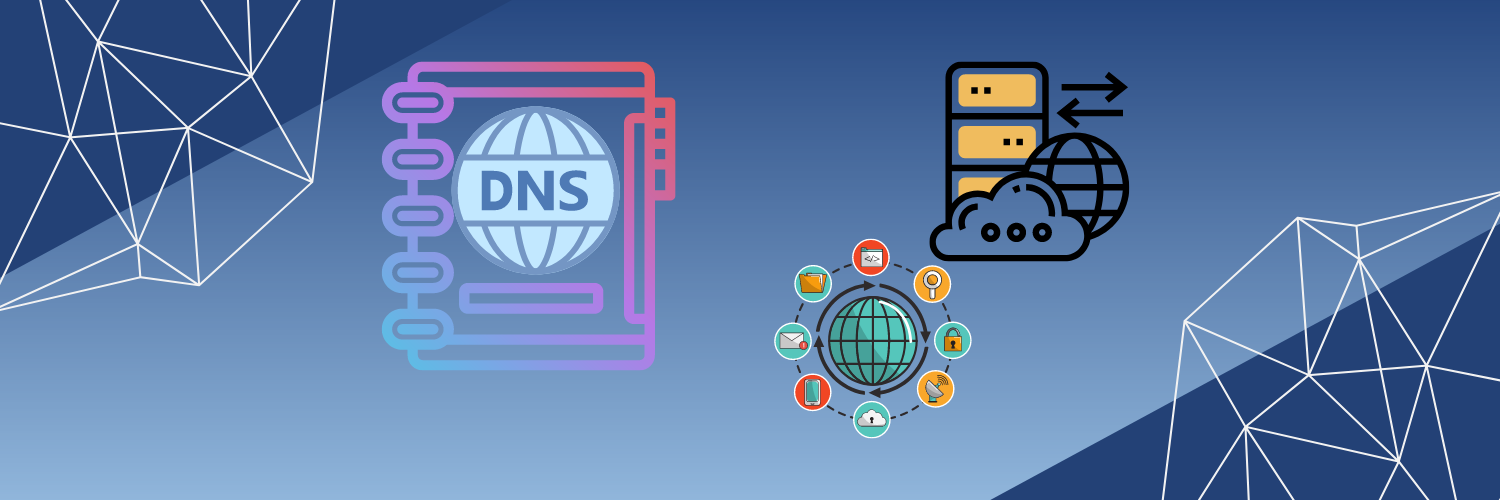DNS Security: How The Phone Book Of The Internet Stays Safe
 MD Tajdar Alam Ansari
MD Tajdar Alam Ansari
Introduction
Greetings earthlings!
In this article, I will be discussing about DNS security (Domain Name System). We will see
What is DNS?
What are the different DNS vulnerabilities and attack vectors?
How do we secure DNS?
How DNS can be a security risk?
How does it differ from a VPN?
So without further ado let's get started.
What is DNS?
DNS stands for Domain Name System. It is a system that is used to convert human-readable website names (such as www.example.com) into computer-readable IP addresses (such as 192.0.2.1). This is necessary because computers and other devices communicate with each other using IP addresses, but it is much easier for people to remember and use domain names instead.
What are the different DNS vulnerabilities and attack vectors?
There are many different vulnerabilities and attack vectors that can be used against the Domain Name System (DNS). Some of the most common include:
DNS spoofing: This is a type of attack where an attacker intercepts and modifies DNS responses, redirecting users to fake or malicious websites.
DNS cache poisoning: This is a type of attack where an attacker injects false DNS records into a DNS server's cache, redirecting users to fake or malicious websites.
DNS amplification attacks: This is a type of attack where an attacker uses a network of compromised DNS servers to send large amounts of traffic to a target, overwhelming it and causing it to become unavailable.
DNS hijacking: This is a type of attack where an attacker takes control of a domain name and redirects it to a different IP address, typically one that is controlled by the attacker.
DNS tunneling: This is a technique where an attacker uses the DNS protocol to tunnel other types of traffic (such as HTTP or FTP) through DNS queries and responses, bypassing firewall restrictions.
These are just some examples of the many different types of attacks that can be used against DNS. It is important for organizations to implement strong security measures to protect their DNS servers and prevent these types of attacks.
How do we secure DNS?
There are many different ways to secure the Domain Name System (DNS) against various vulnerabilities and attack vectors. Some of the most common steps that organizations can take to improve their DNS security include:
Implementing DNSSEC: This is a security extension to the DNS protocol that adds a layer of authentication to DNS queries and responses, allowing clients to verify the authenticity of DNS data.
Using DNS filtering: This is a technique where DNS queries are analyzed and filtered based on specific criteria, such as the reputation of the domain or the type of content it hosts. This can help prevent users from accessing known malicious websites.
Configuring DNS servers to use random source ports: This can help prevent DNS amplification attacks, as it makes it more difficult for attackers to predict the source port of DNS queries.
Enforcing strong passwords and access controls on DNS servers: This can help prevent unauthorized access to DNS servers and prevent attackers from modifying DNS records.
Regularly patching and updating DNS software: This can help prevent known vulnerabilities in DNS software from being exploited by attackers.
By implementing these and other security measures, organizations can significantly improve the security of their DNS infrastructure and protect against various types of attacks.
How DNS can be a security risk?
The Domain Name System (DNS) can be a security risk for several reasons. First, DNS is a critical infrastructure component that is essential for the functioning of the internet. If an attacker is able to compromise DNS servers or the DNS infrastructure, it can have a widespread impact and cause widespread disruption.
Second, DNS is vulnerable to various types of attacks, such as DNS spoofing, cache poisoning, and DNS amplification attacks. These attacks can redirect users to fake or malicious websites, leading to the theft of sensitive information or the spread of malware.
Third, DNS can also be used as a vector for other types of attacks, such as DNS tunneling, where an attacker uses the DNS protocol to tunnel other types of traffic through it. This can allow attackers to bypass firewall restrictions and gain access to internal networks.
Overall, it is important for organizations to take steps to secure their DNS infrastructure and protect against these and other potential security risks.
How does it differ from a VPN?
A VPN, or Virtual Private Network, is a technology that allows users to securely connect to a private network over the internet. It uses encryption to protect the data that is transmitted between the VPN client and the VPN server, providing a secure and private connection.
In contrast, the Domain Name System (DNS) is a system that is used to convert human-readable domain names (such as www.example.com) into computer-readable IP addresses (such as 192.0.2.1). It is an essential infrastructure component of the internet that is used to route traffic to the correct destination.
While both DNS and VPNs are important for secure and reliable internet communication, they serve different purposes and are not directly related. A VPN is used to create a secure and private connection between a client and a network, while DNS is used to resolve domain names to IP addresses.
You can also check here for more info on DNS poisoning and here for more detailed views on DNS vulnerabilities and security
This article must only be used for research and education purposes. Only you are solely responsible for your actions (legal or illegal). Please use this knowledge to perform in areas and places where you have the consent of the owner.
This is my first blog here on this platform. Please do let me know your views on this article. If you like my blog please follow me on LinkedIn and Instagram.
Subscribe to my newsletter
Read articles from MD Tajdar Alam Ansari directly inside your inbox. Subscribe to the newsletter, and don't miss out.
Written by

MD Tajdar Alam Ansari
MD Tajdar Alam Ansari
Cybersecurity researcher currently working at Payatu as a Security Consultant. Likes to work on web and network security. Plays CTF and open to work on projects.